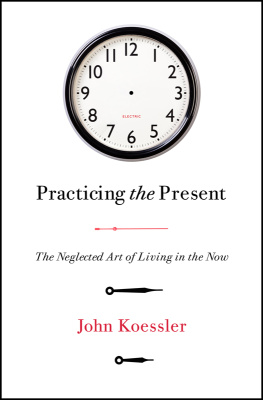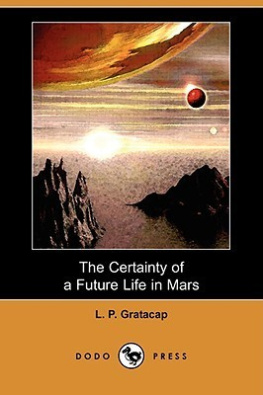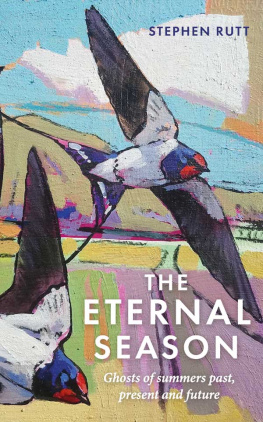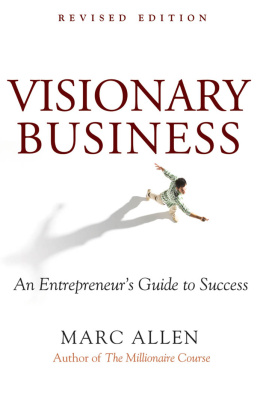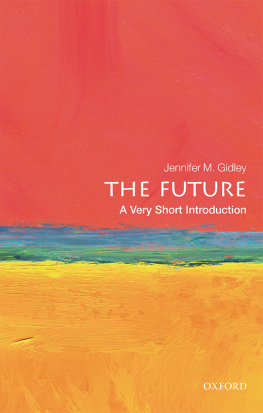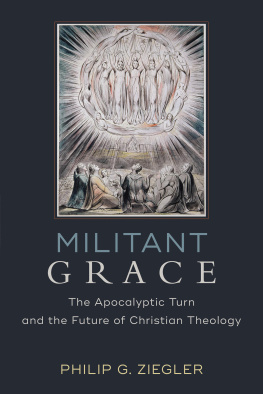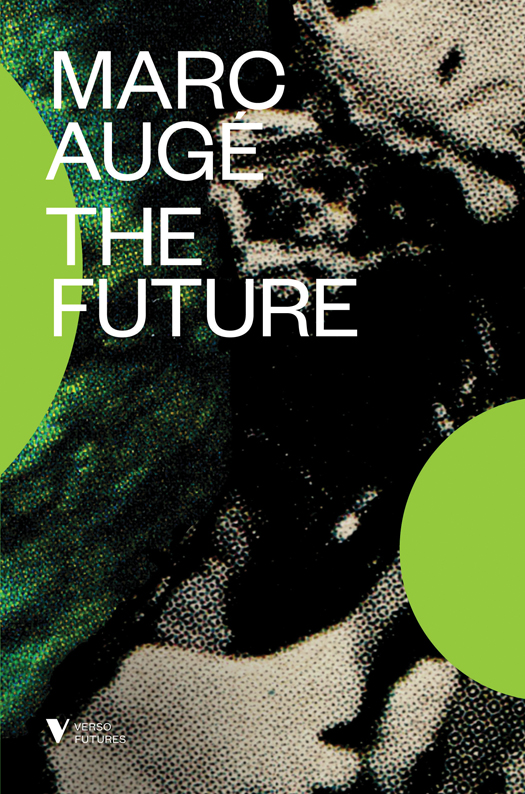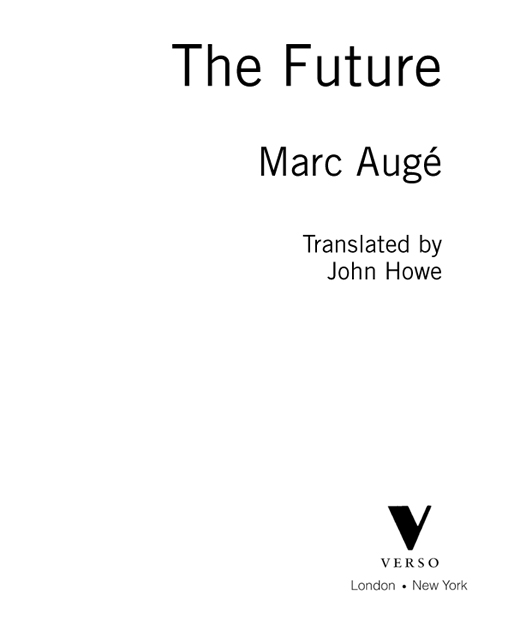Verso Futures
The law of the innermost form of the essay is heresy.
Theodor Adorno
Verso Futures is a series of essay-length philosophical and political interventions by both emerging and established writers and thinkers from around the world. Each title in the series addresses the outer limits of political and social possibility.
Also available in Verso Futures:
The State of Insecurity: Government of the Precarious by Isabell Lorey
Heroes: Mass Murder and Suicide by Franco Bifo Berardi
Dj Vu and the End of History by Paolo Virno
This English-language edition first published by Verso 2014
Translation John Howe 2014
First published as Futuro
Bollati Boringhieri 2012
All rights reserved
The moral rights of the author have been asserted
Verso
UK: 6 Meard Street, London W1F 0EG
US: 20 Jay Street, Suite 1010, Brooklyn, NY 11201
www.versobooks.com
Verso is the imprint of New Left Books
ISBN-13: 978-1-78168-566-2 (PB)
ISBN-13: 978-1-78168-567-9 (HB)
eISBN-13: 978-1-78168-568-6 (US)
eISBN-13: 978-1-78168-718-5 (UK)
British Library Cataloguing in Publication Data
A catalogue record for this book is available from the British Library
Library of Congress Cataloging-in-Publication Data
Aug, Marc.
[Futuro. English]
The future / Marc Aug ; translated by John Howe.
pages cm
ISBN 978-1-78168-566-2 (pbk. : alk. paper) ISBN 978-1-78168-567-9
(hardback : alk. paper)
1. EthnologyPhilosophy. 2. Future in popular culture. 3. Civilization, Modern1950Philosophy. 4. Future in literature. 5. Flaubert, Gustave, 18211880. Madame Bovary. I. Title.
GN345.A92213 2014
303.49dc23
2014025614
v3.1
Contents
Chapter 1
Individual Future and Collective Future
The subject of this book is the future.
Not the future in the sense of what is to come. That is a somewhat myopic concept that we project without much thought onto ill-defined groups (What future are we shaping for our children?) when we talk, again without much thought, of our presumed inadequacies (We are accountable for the future of our children) or our hopes (Science is the future).
Not that future, but the future as a time of conjunction, the most concrete time of conjunction if it is true that the present is always ungraspable, ever retreating with the ceaseless passage of time; and that the past is always obsolete, irremediably finalized or forgotten. The future as life in the process of being lived individually.
That future is essentially obvious, while we are in perpetual doubt over what is to come. What it boils down to is current events which give a content to the future by occurring. On that basis it can arouse every hope and every fear. There are societies in which occurrences, as pure contingency, are experienced as unbearable: they are interpreted, to slot them into the structure, and thus make them into a normal, expected expression of the order of things. Misfortune in general and illness in particular are investigated with a view to identifying the individuals responsible for them, but also to reaffirm the existence of an immutable norm: that is why their anthropologies (if this term is understood to mean a coherent body of representations assembled over time and transmitted from generation to generation) already include definitions of the individual, of the body, of consanguinity and of the collection of interpretative tools that make it possible, when the occasion arises, to explain apparent disturbances as indirect expressions of the norm. Taken together, these elements comprise a set of instructions which ethnologists analyse piece by piece in chapters covering, for example, kinship, the notion of the individual or beliefs in magic and sorcery. But the persecutory conception of misfortune corresponding to this type of interpretation (when someone falls ill or dies, someone else must necessarily be the cause), while most spectacularly expressed in those human groups in which the individual is closely, substantively and structurally integrated with the collective, is only one of the modalities through which human societies in general try to account for events by fitting them into a logical and chronological succession. The past is never wholly occluded either on the individual or the collective level.
The future, even when it concerns the individual, always has a social dimension: it depends on others. Any episode seen as a stage in an individuals life (an examination, a competition, a job, a marriage) depends to a large extent on people other than himself and fixes him more firmly in the web of collective obligations. It is sometimes said that the individual constructs his future, but others participate in that enterprise which is primarily a manifestation of social life. Inversely, people speak these days of the social exclusion of those who apparently have no future, who complain and protest because their assignation to a miserable and continuing present is experienced as the equivalent of a death sentence.
So, both senses of the future are expressions of the essential solidarity between the individual and society. An absolutely solitary individual is unimaginable, just as one sort of future without the other would be unbearable. But inversely, to subordinate an individual to collective standards and his future life to what befalls the group smacks of totalitarianism. The radiant future once promised to the popular masses was a contradictory and impossible idea, in that it implied the stopping of time and thus the disappearance of the future and of the individual with it. Basically it is the same with the future as it is with happiness. The object of democracy is not to ensure the happiness of all, but to create the conditions for it as a possibility for each individual by eliminating the most obvious sources of unhappiness. An acceptable future for all would be one in which everyone could manage their own time and give meaning to the future by individualizing their personal futures.
The real problems with democratic life today stem from the fact that technological innovations exploited by financial capitalism have replaced yesterdays myths in the definition of happiness for all, and are promoting an ideology of the present, an ideology of the future now, which in turn paralyses all thought about the future.
So what is proposed here is a dual approach, a dual study. We will start by examining the two main modalities of relation to the future observed in the diversity of human societies: the one which makes the future a successor to the past, the schematic one; and the other which makes it a birth, an inauguration. Both have acquired institutional and cultural forms of expression. We will also consider what is becoming of these two modalities in the contemporary period. Singular or collective, individual or social, purely temporal or historical (all these aspects remaining indissociable for the time being), the future is today taking on a new dimension and displaying several faces. It arouses multiple fears, but also because man as a symbolic creature cannot live without some awareness of others and of the future recurrent expectations, hopes and utopias. It is the acceleration of these mood swings and the accentuation of this bipolar character, common to collective mentalities and individual sensibilities, that characterize henceforth our relation to the future.




